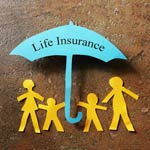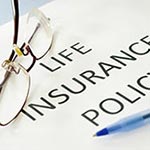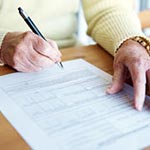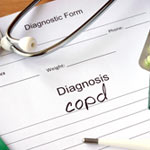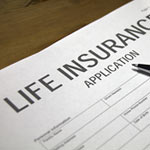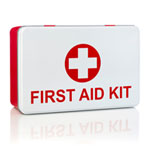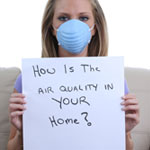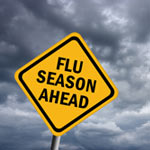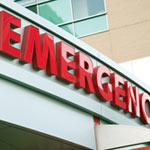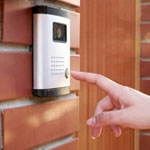Planning Your Family For An Emergency Evacuation

People don’t often think about an evacuation plan until a disastrous event occurs and people in a stricken area are evacuated. Evacuations are actually very common and happen many times throughout the year. Whether it’s due to weather, hazardous chemical accidents, wild fires or another type of disaster, it is essential that your family has a plan on how to respond in the case of an emergency.
Having an evacuation plan that each family member knows and can follow can help keep your family safe during any disaster; which is important if you’re given little time to evacuate. The amount of time you are given to evacuate may depend on the type of disaster. Weather forecasters can often help determine when a tornado or hurricane is approaching and can alert the public when an evacuation needs to take place. However, in cases where a gas line is accidently cut or hazardous material is spilt, for example, it may be necessary to immediately evacuate the area.
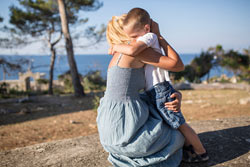
People who live in certain areas may need to be even more diligent about having a family disaster plan. People who live along the Gulf and Atlantic coasts are very susceptible to flooding, while people who live in wooded or tall grass areas are more susceptible to fires. No matter what the case may be, it’s impossible to know when a disaster may happen and it’s important to be able to quickly gather the basic necessities and seek safety.
When you begin planning for a disaster evacuation for your family, you may want to take the following actions:
- Check with your workplace and your children’s school or daycare to see what procedures and policies are in place in case of an imminent disaster. Ask questions like will you receive warning information during a disaster from the school and your place of employment, do they have a place of shelter or an evacuation plan and will you be able to communicate with your family during a crisis?
- Make sure you have an evacuation plan that includes escape routes from your home in the event of an emergency, such as a fire or a flood. An easy way to help children remember how and where to evacuate is to draw a map of your house and explain how to safely evacuate. Establish a meeting place if you get separated. It is always good to show them more than one way to escape each room of your house. You can contact your local authorities to get detailed information regarding evacuation routes.
- Create a way for your immediate family members make contact with one another in case of an emergency. Make a list of family members or friends living out of state, along with phone numbers, so your immediate family can contact them with updates. Place the emergency contact list in your kids backpack, your wallet or purse for easy access.
- Remember when preparing for a potential disaster to decide whether or not you have adequate insurance coverage. Research the extent of insurance coverage you need for your personal property. Check to see if your insurance policies cover certain natural disasters such as flooding, hurricanes or tornadoes. Remember to take pictures or a video of your property, including the outside and inside of your house, as well as the contents within the house. It’s also good to keep a list of all of your belongings. Placing your property records and insurance policies in a safety deposit box will also ensure that your documents are safe in the event of a disaster. You may also check if your life and health insurance policies are up to date.
- Make arrangements to take care of any medical needs you or your family may have before a disaster happens. If you or a family member is hearing impaired, make sure that warnings can be clearly heard and understood. If you or a family member is wheelchair bound, arrange for assistance when seeking safety. Keep any medical supplies and equipment that may be needed easily accessible like first aid kits, catheters, oxygen, medication, diabetic supplies and wheelchair batteries.
- Keep extra blankets, clothes and cash on hand if you know that an emergency evacuation is possible.
- Don’t forget your pets too. Your pet is a part of the family and you will want to have an emergency plan in place in the event of a disaster. Having your pet microchipped can give you peace of mind that your pet can be identified and returned to you if separated. Plan where your pet will go for safety in the event of an emergency. If you will be evacuating to a hotel, find out which hotels allow pets. You may also want to find boarding services outside of your local area in case facilities are not open due to an evacuation.
- If you are aware that an evacuation is possible, it is also important to keep a full tank of gas in your vehicle. During an emergency evacuation gas stations are often closed or have very long lines.
- Keep a weather radio or battery powered radio that is easily accessible for alerts and warnings during severe weather seasons. Follow recommended evacuation plans to avoid any roads that may be closed or blocked due to an evacuation.
You might also be interested in...
-
 10 Signs You May Not Be Drinking Enough Water
10 Signs You May Not Be Drinking Enough Water
-
 8 Signs You May Not Be Getting Enough Magnesium
8 Signs You May Not Be Getting Enough Magnesium
-
 About Life Insurance
About Life Insurance
-
 Do You Really Need Life Insurance?
Do You Really Need Life Insurance?
-
 Does Divorce Spell The End Of A Happy Childhood
Does Divorce Spell The End Of A Happy Childhood
-
 Globe Life is Rated A (Excellent)
Globe Life is Rated A (Excellent)
-
 Health Symptoms You Should Never Ignore
Health Symptoms You Should Never Ignore
-
 History of Life Insurance
History of Life Insurance
-
 Home Cough Remedies
Home Cough Remedies
-
 How High Should Your SPF Be
How High Should Your SPF Be
-
 How To Be Responsible About Life Insurance
How To Be Responsible About Life Insurance
-
 Is Eating Organic Really Safer?
Is Eating Organic Really Safer?
-
 Is White Vinegar A Safe Cleaning Agent?
Is White Vinegar A Safe Cleaning Agent?
-
 Planning Your Family For An Emergency Evacuation
Planning Your Family For An Emergency Evacuation
-
 The Difference Between Power Of Attorney And A Living Will
The Difference Between Power Of Attorney And A Living Will
-
 Reconsider Getting a Life Insurance Policy
Reconsider Getting a Life Insurance Policy
-
 Setting Goals For Your Employees
Setting Goals For Your Employees
-
 Skills that Make Bosses Want to Hire You
Skills that Make Bosses Want to Hire You
-
 The Importance of Life Insurance
The Importance of Life Insurance
-
 The Importance of Term Life Insurance
The Importance of Term Life Insurance
-
 Is It Time To Review Your Life Insurance Policy?
Is It Time To Review Your Life Insurance Policy?
-
 Tips On How To Prevent E.coli
Tips On How To Prevent E.coli
-
 Too Busy to Stay Healthy?
Too Busy to Stay Healthy?
-
 What Is COPD And How You Can Prevent It?
What Is COPD And How You Can Prevent It?
-
 What is Term Life Insurance?
What is Term Life Insurance?
-
 When Insurance Becomes an Investment
When Insurance Becomes an Investment
-
 Choosing Whole Life Vs Term Life Insurance
Choosing Whole Life Vs Term Life Insurance
-
 Why You Should Look Into Term Life Insurance
Why You Should Look Into Term Life Insurance
-
 Making Your Home Senior-Friendly
Making Your Home Senior-Friendly
-
 Is Whooping Cough Making A Comeback
Is Whooping Cough Making A Comeback
-
 Unusual Tricks To Reduce The Risk Of Heart Disease
Unusual Tricks To Reduce The Risk Of Heart Disease
-
 The Best First Aid Kit Everyone Should Have
The Best First Aid Kit Everyone Should Have
-
 Beware Of Dangerous Mold
Beware Of Dangerous Mold
-
 5 Things You Should Know About Thyroid Health
5 Things You Should Know About Thyroid Health
-
 What Your Eyes Reveal About Your Health
What Your Eyes Reveal About Your Health
-
 Everyday Things That Can Cause Memory Loss
Everyday Things That Can Cause Memory Loss
-
 How To Discuss Life Insurance With Your Spouse
How To Discuss Life Insurance With Your Spouse
-
 Why That Cold Won’t Go Away
Why That Cold Won’t Go Away
-
 5 Ways To Keep A Healthy Smile
5 Ways To Keep A Healthy Smile
-
 How Dangerous Is Sugar?
How Dangerous Is Sugar?
-
 5 Warning Signs To Change Healthcare Providers
5 Warning Signs To Change Healthcare Providers
-
 Simple Secrets To Conquer Flu Season
Simple Secrets To Conquer Flu Season
-
 The Hidden Bad Side Of Everyday Foods
The Hidden Bad Side Of Everyday Foods
-
 How To Avoid The Scams That Tricked So Many
How To Avoid The Scams That Tricked So Many
-
 Six Foods That May Reduce Stroke Risk
Six Foods That May Reduce Stroke Risk
-
 Empty Nesters: Don’t Ditch Life Insurance Until You Consider This
Empty Nesters: Don’t Ditch Life Insurance Until You Consider This
-
 How Does Accidental Death Insurance Work?
How Does Accidental Death Insurance Work?
-
 4 Tips To Improve Your Credit Score
4 Tips To Improve Your Credit Score
-
 6 Tech Devices You Need For Family Safety
6 Tech Devices You Need For Family Safety
-
 Public Transportation Safety Tips
Public Transportation Safety Tips
-
 Is Globe Life Insurance Reliable?
Is Globe Life Insurance Reliable?
-
 Hazards in the Kitchen: What You Do Every Day that Puts You at Risk for a Serious Accident
Hazards in the Kitchen: What You Do Every Day that Puts You at Risk for a Serious Accident
-
 Surviving a Snake Bite
Surviving a Snake Bite
-
 Is Globe Life Insurance Term or Whole Life?
Is Globe Life Insurance Term or Whole Life?
-
 The Top 4 Leading Causes of Death for People Older Than 50 and How to Avoid Them
The Top 4 Leading Causes of Death for People Older Than 50 and How to Avoid Them
-
 Nine Eye-Opening Stats That Will Make You Rethink Texting and Driving
Nine Eye-Opening Stats That Will Make You Rethink Texting and Driving
-
 Risks of Dying from Cancer
Risks of Dying from Cancer
-
 What are the Odds of Dying While Taking a Selfie?
What are the Odds of Dying While Taking a Selfie?
-
 Can I Get an Accidental Death Quote Online?
Can I Get an Accidental Death Quote Online?
-
 Buying Life Insurance for the Whole Family
Buying Life Insurance for the Whole Family
-
 What You Need to Know Before Buying Term Life Insurance
What You Need to Know Before Buying Term Life Insurance
-
 Advantages and Disadvantages of Getting Life Insurance without a Medical Exam
Advantages and Disadvantages of Getting Life Insurance without a Medical Exam
-
 A New Year's Resolution You Can Keep: Buy Life Insurance
A New Year's Resolution You Can Keep: Buy Life Insurance
-
 Food Contamination: Ways to Avoid the Potential Dangers and Keep Food Safe
Food Contamination: Ways to Avoid the Potential Dangers and Keep Food Safe
-
 Can I Increase the Face Value of My Term Life Insurance?
Can I Increase the Face Value of My Term Life Insurance?
-
 What is Mortgage Protection Insurance?
What is Mortgage Protection Insurance?
-
 Do I need Accidental Death Insurance?
Do I need Accidental Death Insurance?
-
 How Does a Graded Death Benefit Whole Life Insurance Policy Work?
How Does a Graded Death Benefit Whole Life Insurance Policy Work?

 Insurance products are available in New York from
Insurance products are available in New York from  Insurance products are available in your state from
Insurance products are available in your state from 








